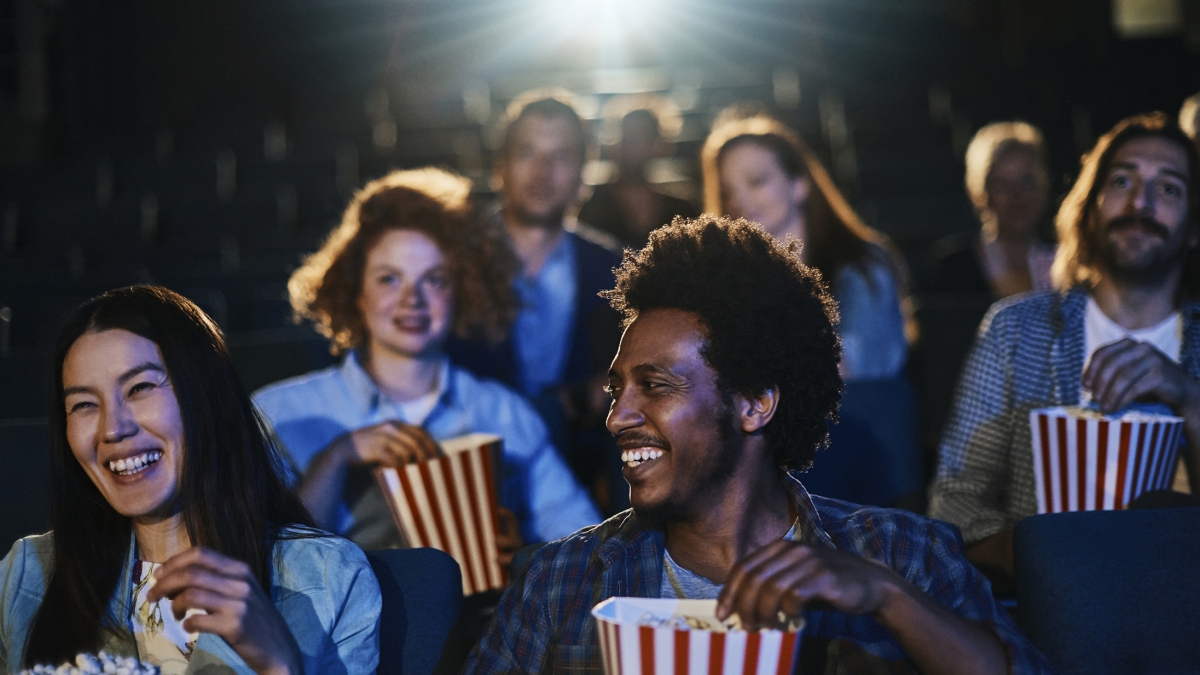Disney disasters. Franchise failures. Tentpole tragedies.
Hollywood is at a defining moment and needs to have a good summer.
Summer movie season is an American institution, but COVID-19 nearly destroyed the industry.
The pandemic kept millions from movie theaters and fueled streaming services to the point where many have continued to stay home and watch first-run films in the comfort of their living rooms. Studio executives realize viewing habits have irrevocably changed, but they still believe there’s a market for spectacle and big-budget films, even with budgets running near $300 million.
So far, blockbuster season has not been resonating with mass audiences. But a slew of new movies such as "Mission: Impossible Dead — Reckoning Part One," "Barbie" and "Oppenheimer" could turn things around. There’s still about six weeks left for Hollywood to prove that movie theaters still have a place in our hearts and wallets.
ASU’s Kevin Sandler couldn’t agree more.
Sandler, an associate professor in ASU’s film and media studies program in the Department of English, specializes in the contemporary U.S. media business, with a particular focus on censorship and animation. He is also the author of several books on the movie industry, including an upcoming trilogy on Hanna-Barbera.
ASU News got Sandler’s views on this year’s summer fare, how movie-going audiences are changing their watching habits and how this all impacts the film industry’s bottom line.
Note: Answers may have been edited lightly for length and clarity.
Kevin Sandler
Question: This is the first post-pandemic blockbuster summer lineup for movies, and it seems to be a great lineup with "Fast-X," "The Little Mermaid," "Spider-Man: Across the Spider-Verse," "Elemental," "The Flash," "Indiana Jones and the Dial of Destiny" and "Mission: Impossible — The Dead Reckoning Part One." What are your expectations for the rest of the summer?
Answer: It is certainly hard to tell. Thus far, domestic box office total in 2023 is 20% over the previous period but still trails 2019 pre-pandemic numbers. Additionally, summer box office 2023 is still struggling to surpass last year’s numbers. A few recent expensive tentpoles — "The Flash" and "Indiana Jones and the Dial of Destiny" — greatly disappointed at the box office, but that’s unlikely to be the case with the big three movies coming up in July: "Mission Impossible," "Barbie" and "Oppenheimer" — the last two opening on July 21 collectively known as "Barbenheimer."
"Mission Impossible" and "Barbie" look to be gigantic hits, while "Oppenheimer" may surprise. Even if some of these potential blockbusters and the upcoming "Haunted Mansion" and "Teenage Mutant Turtles" underperform, there still are the big releases for the fall: "Kraven the Hunter," "Wish," "Aquaman and the Lost Kingdom" and "The Hunger Games," among others.
As a franchise-driven industry year-round, Hollywood’s overall box office health is measured annually now, rather than in the summer. And then there’s the fact that record-breaking means something different for the studios than the exhibitors. Expensive underperforming movies like "Indiana Jones" and "Elemental" may hurt the profitability of the studios, but a robust box office, in general, is a boon for theater owners, driving concession sales and other exhibition revenue generators like IMAX.
Q: Now that the pandemic is winding down and society is returning to its normal patterns of behavior, how will it change viewing habits of people? Will they return to theaters or stick with streaming?
A: Now that the studios are committed to the pre-pandemic models of moviegoing, audiences will no longer have a choice but to return to theaters to see the next big-budget, potential blockbuster movie.
COVID-19 upended the traditional release strategy of a major motion picture — it would only play in theaters, (for) an average of 90 days, before moving downstream to other platforms like streaming and Blu-ray. When movie theaters reopened but audiences were still reluctant to return to them, studios adopted a different exhibition strategy known as day-and-date, releasing their films in theaters and via streaming on the same day.
The year 2021 saw a bevy of films released this way, like "Godzilla vs. Kong" on HBO Max and "Jungle Cruise" on Disney+. Today, that simultaneous window is gone, but the theatrical window has shrunk to 45 days, a length of time the studios and exhibitors, though reluctantly, still believe foster an exclusive feeling about motion pictures and the movie theaters that exhibit them.
Q: What’s the magical formula of getting people back to the movie theater?
A: The movies themselves need to reward audiences with a viewing experience that is deserving of that exclusivity. That experience, particularly for a would-be blockbuster, requires something resembling an “event”: the presence of an extra dimension of some kind or another involving spectacle, bigness and specialness that is worth people’s time and money. These pleasures for such noteworthy movies have remained largely in place since "Star Wars" in 1977.
The weak opening weekends of "Indiana Jones" and "Elemental" demonstrated that audiences didn’t find them special enough to attend in the movie theaters. The trailers and marketing operation for "Mission Impossible" and "Barbie" make them look special and should be surefire blockbusters. "Oppenheimer" seems worth it as well.
Q: What are you looking forward to seeing this summer?
A: I am most looking forward to seeing "Barbie." As a father and stepfather to four little girls, Barbies have been in my life for almost a decade. And as someone who has studied brands my entire career, with the most recent being my book on Scooby-Doo, I am fascinated to see if Mattel, director and co-writer Greta Gerwig, and stars Margot Robbie and Ryan Gosling can revitalize and redefine the Barbie brand with this movie.
The marketing — the trailers, the social media campaigns, the company partnerships — all seem to rally around such values as inclusivity, diversity and empowerment. ... "Barbie," it feels, now seems progressive and feminist where one can take the brand and adhere to its racial and gender norms or subvert them. Whether the movie bears that out, we will see.
It seems to be something that audiences want is a post-COVID world like "Mission Impossible": something escapist, playful, familiar and with lots of glitter.
Top photo courtesy of iStock/Getty Images
More Arts, humanities and education

Local traffic boxes get a colorful makeover
A team of Arizona State University students recently helped transform bland, beige traffic boxes in Chandler into colorful works of public art. “It’s amazing,” said ASU student Sarai…

2 ASU professors, alumnus named 2025 Guggenheim Fellows
Two Arizona State University professors and a university alumnus have been named 2025 Guggenheim Fellows.Regents Professor Sir Jonathan Bate, English Professor of Practice Larissa Fasthorse and…

No argument: ASU-led project improves high school students' writing skills
Students in the freshman English class at Phoenix Trevor G. Browne High School often pop the question to teacher Rocio Rivas.No, not that one.This one:“How is this going to help me?”When Rivas…



